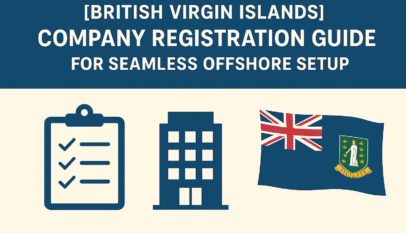
In Canada, navigating the landscape of business financing can be complex, yet essential for growth and sustainability. Understanding the various funding options available—whether loans, grants, or equity investment—can empower entrepreneurs to make informed decisions that suit their unique needs. With a mix of private and government resources, the financing landscape offers a range of possibilities tailored to different stages of business development.
Many Canadian businesses overlook critical funding sources that can significantly impact their financial health. From traditional banks to innovative fintech solutions, a variety of institutions are ready to support businesses with competitive rates and terms. It’s crucial for business owners to explore these options and evaluate which aligns best with their goals and cash flow requirements.
The importance of a solid financial strategy cannot be overstated. With the right knowledge and resources, business owners in Canada can secure the funding they need to thrive and innovate in a competitive marketplace.
Overview of Business Financing in Canada
Business financing Canada consists of various options tailored to different needs. Understanding these options helps entrepreneurs make informed decisions about acquiring capital.
Common Types of Business Financing
In Canada, businesses often utilize several types of financing to fund operations and growth.
- Debt Financing: This includes loans, credit lines, and bonds. Businesses repay the principal plus interest over time. Institutions like banks offer term loans for specific projects or needs.
- Equity Financing: In this method, investors provide capital in exchange for ownership stakes. This can come from venture capitalists, angel investors, or through public stock offerings.
- Grants and Subsidies: Certain industries may qualify for government grants that don’t require repayment. These often target innovation, technology, and social enterprises.
- Leasing and Asset-Based Financing: Businesses may lease equipment instead of purchasing. Asset-based loans use company assets as collateral, offering more accessible funding.
The Role of the Canadian Government
The Canadian government plays a significant role in facilitating business financing through various programs and initiatives.
- Government Grants: Programs like the Canada Small Business Financing Program help newcomers access grants aimed at innovation and growth.
- Loan Guarantees: Government-backed loans, including those from Export Development Canada, lower risks for lenders, enabling more businesses to secure funding.
- Research and Development Incentives: Tax credits for R&D encourage investment in innovation, benefiting companies working on new technologies.
- Support for Startups: Various initiatives target startups, offering not only funding but also mentorship and networking opportunities.
Private Sector Financing Options
Private sector financing represents a crucial area for businesses seeking capital.
- Venture Capital Firms: These firms invest in high-potential startups, providing not just funds but also strategic guidance. This option is ideal for businesses looking to scale rapidly.
- Angel Investors: Wealthy individuals provide funding in exchange for equity or convertible debt. They often support early-stage companies.
- Online Lending Platforms: Peer-to-peer lending and crowdfunding through platforms such as Kickstarter allow businesses to reach broader funding sources without traditional banks.
- Trade Credit: Suppliers may offer trade credit, allowing businesses to purchase goods without immediate payment. This helps manage cash flow while waiting for customer payments.
By exploring these options, businesses can effectively navigate their financing landscape in Canada.
Navigating Business Financing
Navigating business financing in Canada requires careful preparation and a clear understanding of the available options. This process involves approaching lenders and investors strategically and recognizing key aspects of the application process.
Preparing to Approach Lenders and Investors
Before engaging with potential lenders or investors, a business must prepare crucial documents. These include a comprehensive business plan outlining objectives, target markets, and financial forecasts.
Financial statements, such as cash flow and profit-loss statements, must be current and accurate. Maintaining a meticulous record-keeping system supports transparency and builds trust.
Understanding personal and business credit scores also plays a vital role. Higher scores can facilitate better loan terms.
Networking is essential; connecting with industry professionals can lead to valuable introductions and insights.
Understanding the Application Process
The application process for securing financing varies by lender. Generally, it begins with submitting a detailed application, which may include personal and business information.
Lenders typically require documentation demonstrating the business’s revenue, expenses, and growth potential. Providing a clear use of funds can strengthen an application.
Anticipating questions or concerns from lenders can improve response effectiveness.
Proactive communication and follow-up can enhance credibility, showing the lender a commitment to transparency and collaboration.
Strategies for Successful Financing
Successful financing strategies often involve a multi-faceted approach. Creating a clear value proposition is essential, as it helps articulate why an investment or loan is a sound decision.
Exploring diverse financing options, such as government grants, angel investors, or crowdfunding, can expand opportunities.
Utilizing financial advisors or consultants can provide tailored insights and strategies based on specific needs.
Building a solid relationship with lenders can lead to favorable terms in current and future dealings. Regularly updating financial reports can help maintain trust and demonstrate ongoing performance.
By preparing strategically and understanding the nuances of the financing process, businesses can increase their chances of success.
British Virgin Islands Company Registration Guide for Seamless Offshore Setup
Registering a company in the British Virgin Islands (BVI) is a straightforward process tha…









